Open Issue
26.2 Spring 2022
Logging On
In This Issue
Michael Faris, Editor
Logging On: Spring 2022
Cheryl Ball, Editor
-
Disputatio
-
Performing Rhetorical Attunement
Julie Amick Cook

Building upon the theoretical framework of Tony Scott's (2018) “curriculascapes,” this webtext dramatizes the multivocality and rhetorical attunement that is required of those who do most composition teaching while also accenting how performances can breach and transform institutional, political, and economic imperatives.
-
Basic Coding
Stephen J. Quigley
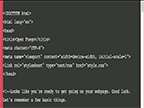
In a UI-driven design world, we cannot overstate the anxiety many individuals experience when encountering code. If we wish to promote any form of coding literacy at scale, our earliest attempts will need to address these fears. This webtext introduces the pedagogy of basic coding and Open Fuego, a tool designed to help educators easily integrate aspects of coding literacy, computational thinking, and computer science knowledge into the rhetoric and composition classroom.
-
-
Topoi
-
A Scyborg Composition Course
José Luis Cano, Jr.
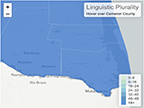
"In this webtext, I approach the composition course as an assemblage of technologies that inhibits moving beyond White Mainstream English (WME). The assemblage of state-assigned learning outcomes, the American Community Survey (ACS) data on language, and the composition course reinscribe WME. However, this assemblage of technologies works against itself when reassembled appropriately. Through mapping technologies, I reassemble these technologies to 'break' learning outcomes..."
-
The Rhetoric of Description: Embodiment, Power, and Playfulness in Representations of the Visual
Margaret Price & Erin Kathleen Bahl
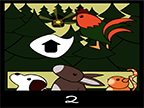
This project explores audio description (AD) as a rich digital-composing practice. It offers a framework for understanding AD rhetorically, which is elaborated through an illustrated retelling of the fairy tale "The Bremen Town Musicians." Through discussion of the framework and the fairy tale, this webtext highlights the complex technical and ethical questions that arise with applications of AD.
-
-
Praxis
-
Great Power, Great Responsibility: Accessible Pedagogy for Teaching Comics
Amanda Athon
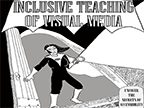
Attention to visual literacy and graphic literature has greatly increased in the field of rhetoric and composition. However, the comics industry has fallen behind in terms of attention to access for readers. This webtext discusses how writing faculty can make their visual course content—comics, in particular—more inclusive while fostering discussion of disability studies and access in the classroom.
-
Fostering Community through Metacognitive Reflection in Online Technical Communication Courses
Julianne Newmark & Tiffany Bourelle
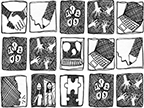
Designing an online course that focuses on multimodality and community building—where community encompasses the online space and the larger society and can be uniquely fostered by metacognitive engagements—can promote student success as literate citizens within and beyond academia. Metacognitive reflection, in our case linked to the canon of Memory, can guide students to reconsider how elements of the course can affect their learning and their work in their future careers.
-
-
PraxisWiki
-
Classroom Netprov: A Walkthrough of Electronic Literature Support Group for Teachers
Hannah Ackermans
-
Googling Writing: Google Docs, Draftback, and Researching and Responding to Students’ Writing Process
Roger Powell
-
A Genre Analysis Workshop for Faculty Writing Digital Monographs
Gwendolynne Reid & Sarah McKee
-
“Hello, Is This the Writing Center?”: Illicit Paper Mill Activity and the Compromised Recomposition of College and University Websites
Jim Ridolfo, William Hart-Davidson, & Chris Lindgren
-
Canadian Mixtape: Sounding Out Digital Authoring Practices with Undergraduate Writer/Designers
Rich Shivener, with Hannah Anderson, Mihnea Dumitru, Oyindamola Esho, Jessica Oliveira Da Silva, Varsha Ramnarine Singh, Julia Vaiano, & Ademi Yestayeva
-
Interviews
-
Moving In and Out of Time
Lee Skallerup Bessette
-
Index: All Kairos Interviews
Reviews
-
A Review of Key Theoretical Frameworks: Teaching Technical Communication in the Twenty-First Century edited by Angela M. Haas and Michelle F. Eble
Kimberly Groves
-
A Review of Explanation Points: Publishing in Rhetoric and Composition edited by John G. Gallagher and Dànielle Nicole DeVoss
Keaton Lamle
-
A Review of Rhetoric, technology, and the virtues by Jared S. Colton and Steve Holmes
Jonathan Marine
-
A Review of Digital Ethics: Rhetoric and Responsibility in Online Aggression edited by Jessica Reyman and Derek M. Sparby
Bailey Poland
-
Index: All Kairos Reviews

